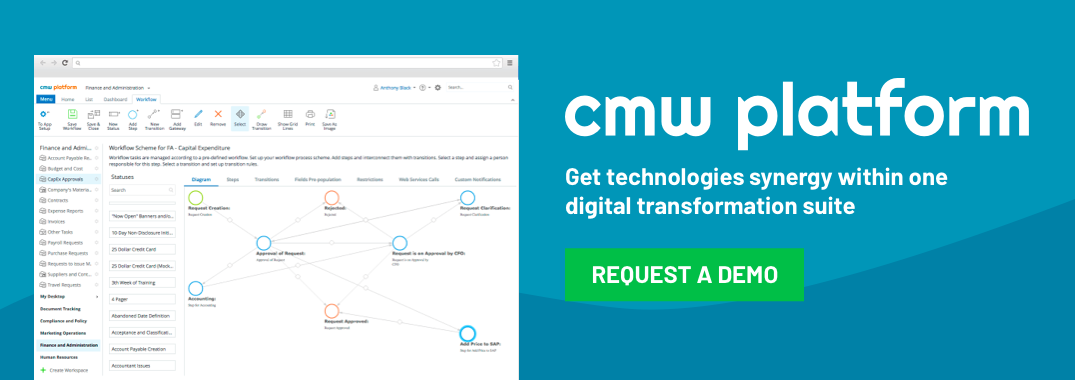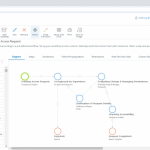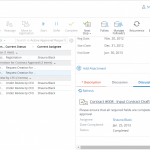Business Process Management System – What You Need to Know
April 11, 2024
Business process management System, or BPMS, can be an intimidating concept. That’s understandable, considering the many explanations out there that are riddled with jargons most people don’t have the time or patience to dig deep into.
This article aims to explain in simple language the fundamentals of BPM.

Business process management – a brief overview
BPM has been in existence for decades. Some of you may have been introduced to it via other names – business process reengineering, workflow automation, work optimization, business performance management system, and the like. At the core, the aim is essentially the same – to improve process performance outcomes and overcome revenue leakages resulting from inefficiencies.
Methodology
The business process management system is first and foremost a methodology where roles and actions are defined, how teams and departments are managed, the outputs expected of each role, and the results needed to serve the client’s interest. BPM allows you to examine process challenges and bottlenecks, and make improvements where necessary.
Approach
Like Lean and Six Sigma – or more recently, Lean Six Sigma – BPM is an approach that aligns business processes with what the customers want and need. Lean and Six Sigma evolved from a manufacturing viewpoint where Lean aims to eliminate waste and Six Sigma focuses on quality.
Pillars
BPM implementations that have proven to be unsustainable revolved solely on one aspect – process. For BPM to be successful, it has to have the following three main pillars:
- People
If you want cooperative staff in your process improvement goals, they should be part of the BPM vision and design. After all, they’re the ones executing the processes. Garbage in, garbage out, remember?
- Process
End-to-end process visualization starts with the big steps and moves down to the details. Focusing on high-level processes has its benefits, but forgetting the little details, like nonstandard transactions, can imperil the overall process, as most service slippages happen where they’re unexpected or undefined.
- Technology
When roles have been clarified and processes determined, technology, such as BPM software, can then be applied to ensure that the process stays on track and is consistently carried out.
BPM and corporate software
Business process management is generally at work whenever systems, which can include software implementation or changes to how certain processes are tackled, are introduced to ongoing operations.
Advantages
As long as the process-appropriate strategies and technologies are deployed, the takeaways can be overwhelmingly positive.
- General business management
Visibility is one key advantage to ensuring the right business management software system is in place. It allows managers to better identify difficulties, and implement the necessary adjustments before things go from bad to worse.
- Business performance
Eliminating process inefficiencies, wastage and redundancies benefits the business bottom line.
- Communication
Effectively plugging communication loopholes among departments and teams can only result in better collaboration and speedier task execution.
Examples
Consider the following examples:
- Finance
Invoice approval, payroll, budget and expense tracking are just a few of the staples found in a company’s financial structure. Generating all these through traditional means – manually or through spreadsheets – entails inaccuracies, unnecessary data duplication, lack of data integrity and long process times, not to mention the communication gaps that are likely to occur if the needed financial data is spread across various departments.
Having a business process management system that facilitates enterprisewide data sharing and messaging can eliminate complexities stemming from various data challenges.
- Human Resources
Aside from new employee hiring and onboarding, HR has a gamut of tasks to perform ranging from employee training to leave approvals, certifications to promotions, and other employee-related functions. If your HR department isn’t that big in terms of headcount, automation of repetitive tasks, or workflow automation, may be in order to ascertain that tasks are carried out in a timely manner.
- Information Technology
Trading notepads and Excel spreadsheets for enterprisewide software to standardize and speed up communication centered on technology implementations can go a long way, especially for medium-sized and large businesses.
- Software Development
Testing and bug tracking are an essential part of the software development process. Feedback from beta testers that are scattered across emails and instant messaging platforms do not only mean additional consolidation work, but the same tasks repeatedly undertaken by various members of the team, effectively delaying overall progress.
Conclusion
Business process management is just that – management of a business process with the aim of optimizing that process for better productivity and results. And while the right business process management software can help keep your processes on track, it is critical to understand that the software is just an enabler. It cannot fix processes that are broken.
That being the case, software implementation should be done only after the process has been completely studied, and that the software be flexible to accommodate future tweaks and configurations.




